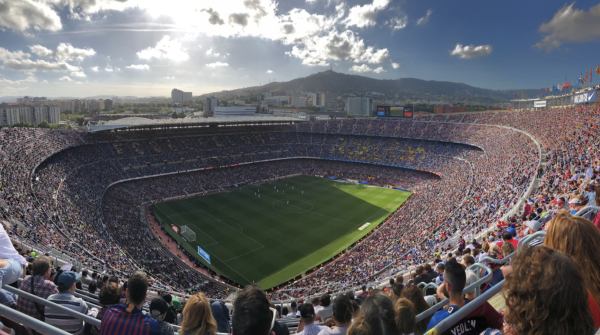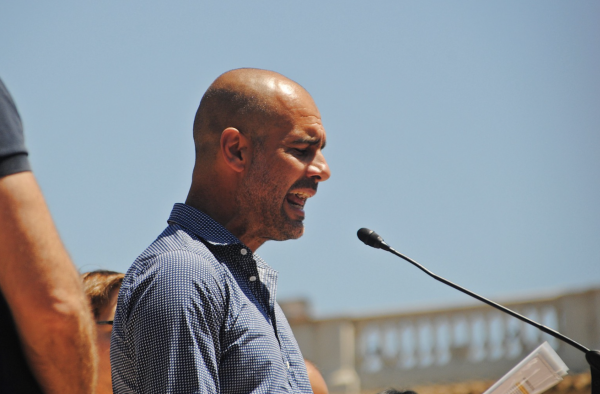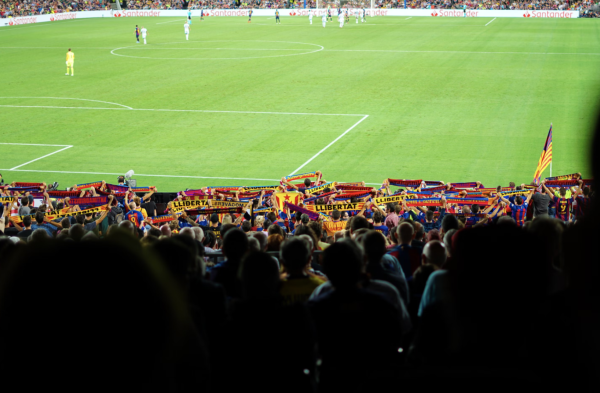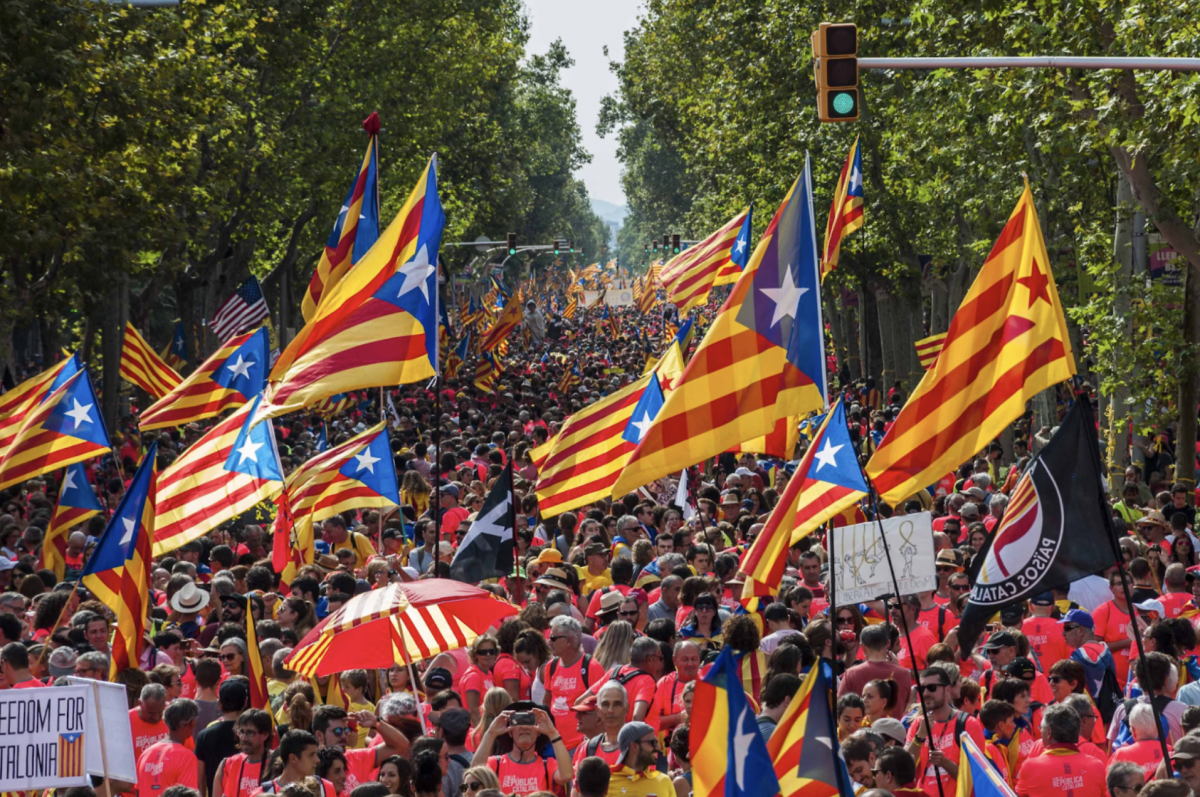As Spain and Catalonia’s political tension presses on, FC Barcelona is anything but silent. In shades of red, blue, and yellow, the football club’s brand has become analogous to Catalonia’s flag — and subsequently, the Catalan identity.
FC Barcelona, colloquially known as Barça, has owed much of its history and culture to Catalonia’s fight for sovereignty. Spanish writer Manuel Vázquez Montalbán once designated the club as Catalonia’s unofficial army, embodying its motto: Més que un club, or “More than a club.”
Independencia! A People’s History
For 13 years, the War of Spanish Succession pitted European dynasties against each other, taking on the nature of a domestic and foreign conflict at the same time. While the war eventually ended in 1714, with several actors ceding power and territory, it was not without a 13-month siege in Barcelona, Catalonia’s capital, that resulted in a defeat and its loss of autonomy.
From then on, Catalans began to live under Spanish rule. In 1931, when Spain became a republic, the central government granted Catalonia semi-autonomous status; later, in 2006, Catalonia was granted “nation” status and evolved into an autonomous community of Spain, with four administrative provinces (Barcelona, Girona, Lleida, and Tarragona).
In Barcelona, twelve young foreigners founded the football club in 1899, with Hans (later known as Joan) Gamper at the group’s forefront. At the time, the sport’s rising popularity throughout Europe and the city’s multicultural identity sparked the club’s beginnings; Gamper, a Swiss native, aimed to create a place for the free exchange and integration of political and cultural ideas.
“When it comes to multinational societies, soccer can transform into a centrifugal force,” said Dr. Kirk Bowman, Professor of International Affairs at the Georgia Institute of Technology. “In Spain, it’s often a sign of independence or superiority, but in a larger context around the world, it is simply something for countries to be proud of and rally around.”
But it was not always this way. For most of the twentieth century, under military general and caudillo Francisco Franco’s rule, Castilian Spanish became the standard vernacular — oppressing minority languages like Catalan, Galician, and Basque. Catalan, in particular, disappeared from the public eye, with public authorities removing the language from the media, schools, and even tombstones.
Just as Barcelona utilized football as an outlet for Catalan culture, Franco exercised it as a method of propaganda in Madrid, Spain’s capital. He demanded the club change its name from “FC Barcelona” to “Barcelona CF” — reflecting the mainstream Castilian naming format and indicating that the Spanish state surveilled even the slightest changes in language. FC Barcelona did not change its name back to the original until Franco’s death in 1974, allowing the Catalan flag and language to be relegalized and slowly reintroduced to the region.

Today, the club’s supporters keep its history alive. At Camp Nou, FC Barcelona’s home stadium, chants ring out when the match clock hits 17:14 — a nod to the year of Catalonia’s defeat during the War of Succession. Fans yell “Independencia!” and raise a sea of red and yellow flags, symbolizing Gamper’s initial vision against their opponents in Madrid.
From Footballers to Advocates
While most famous for producing soccer legends like Lionel Messi and Ronaldinho, FC Barcelona is also a community of individuals who have used the sport’s wide reach to spread important political messages.
Pep Guardiola, a Catalan native, has spoken out for secession and a sovereign state at the Òmnium Cultural and L’Association de Municipis per la Independència, an independence demonstration. A former FC Barcelona manager and current Manchester City manager, he called the Spanish state’s oppression a “political persecution that is improper for a democracy in twenty-first century Europe” and Spain “democratically unsustainable.”
Similarly, Gerard Piqué, former Spain and FC Barcelona player, has been at the forefront of the Catalan cause despite insisting that his “politics were not incompatible with the national team.” As one of the 2.26 million people who voted in a pro-independence referendum, he received much criticism from Spanish fans and experienced tension with his teammates, such as former national team captain Sergio Ramos.

However, in Barcelona, referenda have often led to violent protests and demonstrations over disagreement in Madrid. In a 2019 protest with over 525,000 attendees, the movement’s original “peaceful” element erupted into five consecutive days of rioting and burning. The Spanish government effectively used these statistics as a basis for arrests, warning six-year prison terms for any protester attacking police authority.
As a result, in many instances, change is taking place more subtly. Joan Laporta, FC Barcelona’s current president, is a self-described Catalan nationalist. A previous lawyer in Spain, he vowed to “return the club to the top of world football” and “use the club as an instrument to project the image of Catalonia to the world” — even giving his first press conference in Catalan instead of Spanish.
Language in Spain is not a monolith: Catalan and Spanish developed separately after the fall of the Roman Empire, allowing Catalan to take on a more Gallo-Romantic development and Castilian Spanish to fall under the West Iberian branch. Now, Catalan, with a more intricate verbal conjugation system and a maintained neuter gender for nouns, is more closely associated with Latin and its ancient roots. Even the slightest nuances in language, like Laporta’s conferences, represent a history distinct from the Spanish mainstream.
On The World Stage
“I often contend that FIFA is more powerful than the United Nations,” said Bowman. “That’s for three reasons: it has more members, it can enforce rules without veto power, and it raises its own funds without relying on member donations.”
FIFA, or the Federation Internationale de Football Association (International Federation of Association Football), is made up of 211 nations. While it mainly enters the spotlight every four years during the World Cup, it oversees both international and club football, influencing domestic sports through six confederations.
“Sometimes, FIFA uses its incredible power inappropriately,” Bowman continued. “By hosting World Cups in oil-rich countries like Qatar and Saudi Arabia, for example, it’s sending a terrible signal about the environment, women’s rights, LGBTQ+ rights, and more.”
Since Catalonia is not a nation officially recognized under FIFA, it is not allowed to enter and participate in international competitions like the World Cup — making FC Barcelona the symbolic national team instead. In a Kroeber Anthropological Society Paper at the University of California, Berkeley, researcher Carrie Benjamin wrote that although Catalonia does not have clear geographical boundaries, it is an imagined political community defined by linguistic differences. Historically, Camp Nou, FC Barcelona’s home stadium, was one of the only unifying places of cultural solidarity and opposition toward the Spanish state.

To this end, it is during FC Barcelona’s longstanding engagements with opponent Real Madrid — or Los Blancos — where Catalan nationalism is frequently strongest. Known as an El Clásico, the match is more than a sports rivalry: Real Madrid’s underhand links to the Franco regime in the 20th century have made the club synonymous with the conservative and wealthy, signaling that soccer was only considered meaningful by the government if it aligned with centralization and tradition.
Johan Cruyff, a Dutch manager who used modern soccer philosophies to power FC Barcelona through unparalleled victories from 1988 to 1994, stated that the club “cannot avoid politics.” Under Franco’s regime, Catalan names were banned in the region, but Cruyff decidedly named his son Jordi, after Barcelona’s patron Saint. Now, Jordi Cruyff, following in his father’s footsteps, posed the question: “England, Wales, and Scotland are nationalist when the national team plays, so why can’t we have that?”
Independence: If/When?
Given that FC Barcelona has built most of its brand and identity around the fight for Catalan independence, the possibility of future secession has created doubts about the club’s future. If Catalonia becomes independent, the region’s teams would no longer play in Spain’s La Liga, therefore depriving Spanish soccer of its world-famous club and rivalry. So far, there have been no official statements from those in charge at FC Barcelona.
However, these uncertainties are unlikely to become anything more than a hypothetical scenario. Jordi Turull, a former member of the Catalan Parliament, told The Guardian in 2022 that he believes the Spanish state will never grant Catalonia independence — a flaw built into the very structure of Spain’s judicial system.
After Franco’s death, Spain’s judiciary did not take after the transition from dictatorship to democracy like the other branches of government. If Prime Minister Pedro Sánchez agrees to a referendum on independence, Turull proposed, the process is still in the hands of the nation’s judges. On that front, approval is unlikely — in fact, Spain’s lack of judicial independence served as the basis for The Economist Intelligence Unit (EIU) Index to downgrade the country from a full democracy to a flawed one in 2022.
In the meantime, as Catalonia and Spain’s clash over independence persists, FC Barcelona remains a core social phenomenon — and a reminder that politics, sports, and identity will continue to collide.
“When it comes to multinational societies, soccer can transform into a centrifugal force,” said Dr. Kirk Bowman, Professor of International Affairs at the Georgia Institute of Technology. “In Spain, it’s often a sign of independence or superiority, but in a larger context around the world, it is simply something for countries to be proud of and rally around.”

